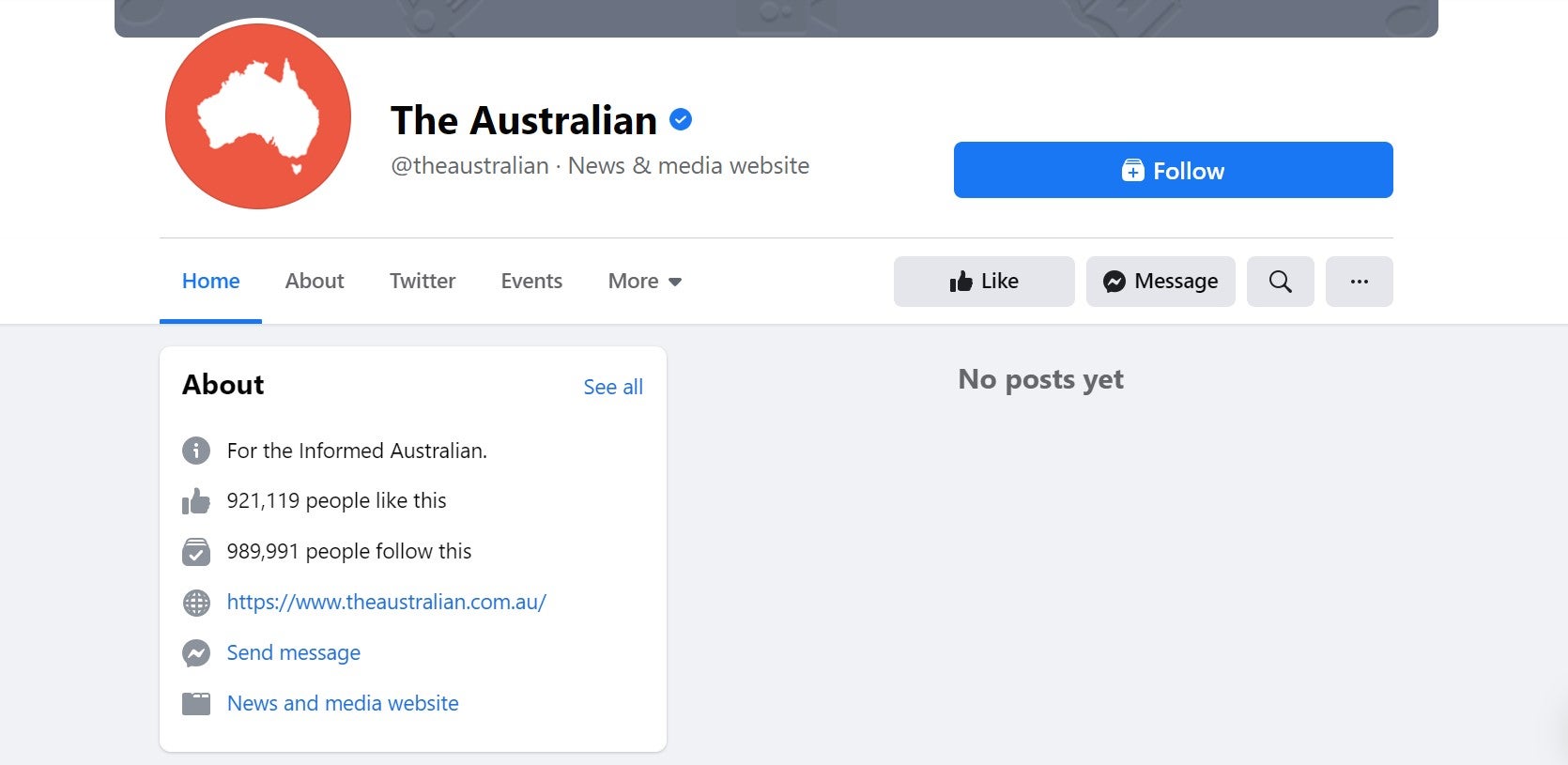Facebook has announced that all posting and sharing of Australian news will be blocked for its 2.8 billion monthly active users worldwide. In addition, Australian users won’t be able to share news links of any kind.
The decision is in response to proposed legislation from Australia’s government that would force Facebook to pay publishers for news links that people shared on the social platform. Facebook is making a big move, likely in hopes of stopping other countries from passing similar regulations.
How the ban works
Facebook is banning all users and outlets located in Australia from sharing news links. It is also banning international users from both viewing and sharing Australian news content on the platform.
Facebook announced the decision in a blog post this morning. They made it clear that their decision was a reaction to Australia’s new law:
“In response to Australia’s proposed new Media Bargaining law, Facebook will restrict publishers and people in Australia from sharing or viewing Australian and international news content.”
There’s no ramping-up period: The change is already in effect. Head over to The Australian‘s Facebook page, and you’ll find nothing at all.

What it means
The new regulation, intended to support public interest journalism, “fundamentally misunderstands” how publishers and the Facebook platform work together, according to the post, and Facebook has made its choice with “a heavy heart.”
Facebook went on to argue that they already provide value to publishers, valuing its own contributions to publishers at AU$407 million, justified by the around 5.1 billion free referrals Facebook estimates it has delivered to Australian publishers.
News links make up less than 4% of content in users’ feeds, according to Facebook, so the substance of what Australian users see won’t change dramatically. Still, they’ll be entirely cut off from the most commonly used news source among social platforms, if its popularity in the US is any indication: According to a 2018 Pew Research survey, over four-in-ten U.S. adults got news from Facebook, with YouTube at a distant second, with 21% of adults.
The collateral damage
Facebook’s ban has been immediate and far-reaching — perhaps too far. Reports are already coming out of bans affecting the pages of websites and information sources other than news. Some of them are essential sources of health information, like the official pages for South Australia and Queensland’s public health systems.
State health departments have been cut off Facebook in the middle of a pandemic. @10NewsFirst pic.twitter.com/wylX7UfIJa
— Chloe Bouras (@ChloeBouras) February 17, 2021
The Australian Council of Trade Unions’ page has also been banned, kneecapping the organization, which has 80% of its audience on the platform:
So @Facebook has blocked access to our website. We are not a news organisation. Australian workers can not now find out about their rights at work via @Facebook. This is disgraceful & needs to be reversed immediately pic.twitter.com/588Qf1JbuD
— Sally McManus (@sallymcmanus) February 17, 2021
Also banned are the pages for the Bureau of Meteorology and the Department of Fire and Emergency Services of Western Australia, among others.
https://twitter.com/joshgnosis/status/1362158667760496642?s=20
Facebook has mentioned in its announcement that it will establish a review process for content “that was inadvertently removed” and it will still “promote dedicated information hubs like the COVID-19 Information Centre” to Australians.
Hopefully this is a sign that Facebook will see fit to restore the major health and information pages that have just gone silent during the biggest pandemic in living memory.
No news is good news?
Is a world where we can’t share Facebook news better or worse? Misinformation is rife on the platform, so banning all of it could be argued to be wiping the slate clean. But the definition of “news” might not include the light-on-facts political memes behind a lot of misinformation, and banning reputable news outlets might leave even more room for the worst to flurish.
For its part, Facebook claims that news is important to a democracy, saying this in the announcement about why it’s banning Australian news on its platform:
“Journalism is important to a democratic society, which is why we build dedicated, free tools to support news organizations around the world in innovating their content for online audiences.”
As important as journalism is to a democratic society, the ability to not pay money for it seems to be even more important to Facebook.
The news comes just a day after reports that Facebook and Google were “very close” to striking deals with the Australian government. Google struck its multi-million-dollar deal today, but Facebook’s news ban looks to be Facebook’s nuclear option in negotiations, likely in an attempt to avoid a landmark that could repeat itself in other countries.
One thing’s for sure: This is the biggest editorial news decision yet from a major social platform, and it highlights the immense power that these companies hold over entire continents.
The news is still fresh, so we likely will learn much more about the ramifications of this major move from the biggest social platform around.
Well, those of us who aren’t Facebook-using Australians will learn more.

Click for a larger view of Pew Research Center’s chart listing the most commonly used social platforms for news




